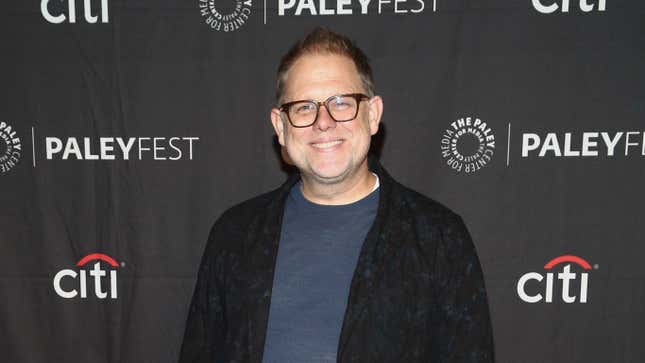
It’s been almost two months since Greg Spottiswood was fired from All Rise, the second-season CBS legal drama he created and co-showran, first with Sunil Nayar, and then with Dee Harris-Lawrence, who stepped in after Nayar quit. Not that that was the only high-profile departure from the show’s staff during Spottiswood’s tenure: The Simone Missick-led series quickly gained notoriety last year when five writers departed the series en masse, all citing Spottiswood, and his attitudes on race and sexism, as reasons for their leaving. Warner Bros. Television Studios kept the series creator on, though, after conducting a “climate survey” that apparently didn’t find anything conclusively damning in his behavior. Spottiswood was ultimately fired after a second investigation, citing an incident in which he reportedly used racially insensitive language during a remote work call.
All of which is pretty much just preamble to a new piece published this week in Salon by Maureen Ryan, outlining the toxic work environment that developed in the writers room on All Rise. What’s fascinating about Ryan’s piece is that it emphasizes the fact that Spottiswood wasn’t accused of sexual harassment, or even Scott Rudin-style temper tantrums, but of creating an environment in which women and people of color felt uncomfortable or unheard, despite the high levels of diversity both in front of and behind the camera. (The show, set in an L.A. courtroom overseen by Missick’s rookie judge, frequently touches on issues of the day, including multiple episodes featuring the Black Lives Matter protests.) “It was a lot of backhanded stuff and very polite Canadian degradation,” one staffer notes, emphasizing that Spottiswood often argued with people of color about their lived experiences, tossing out their contributions to discussions of race because they didn’t read as “real” to him. Others detailed issues with Spottiswood’s treatment of female writers, and one, Shernold Edwards, described her decision to leave the series as a “quality of life decision” to put distance between herself and Spottiswood’s attitude and actions.
The impression granted is one of a workplace that was heavy on additional stresses and emotional work for the people of color on staff, who were frequently tapped to help their white male boss understand the issues he had decided he was the right man to make a TV show about. An unnamed person of color lays it out explicitly near the tail-end of the piece:
It felt like they thought everyone was expendable. The attitude, in so many ways, came off as, “We could just bring in another person of color who could tolerate more.” It felt like, “If he didn’t say the N-word, if he didn’t do this or that, there’s nothing we can do.” And I was like, well, maybe just change your metric about how a toxic work environment is formed and perpetuated. It’s not just someone sexually harassing you or calling you some derogatory term—it’s all of it, everything that builds up to you feeling like you don’t belong somewhere.
Spottiswood reportedly underwent coaching in leadership and management after the first crew of writers departed, but, per the staffers, no real change appeared to happen in the writers room itself. He issued a statement in response to Ryan’s inquiries, rather than answering any specific questions, in which he wrote that, “I recognize that I was not as successful as I hoped and that my communication style during the creative process sometimes was counterproductive…I’m extremely proud of the episodes that were produced during my time, and I wish everyone who remains the very best success in continuing to tell these important stories. I never meant to offend anyone and to those I have, I’m deeply sorry.”
Staffers also called out Warner Bros. Studios Television for leaving them feeling like they had no options to have their concerns addressed.
You can read Ryan’s full piece here.